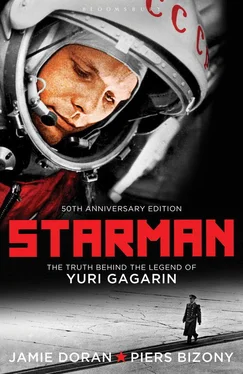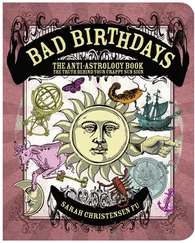One particularly nasty piece of work, a red-haired Bavarian called ‘Albert’, collected the German vehicles’ flat batteries in order to replenish them with acid and purified water, and also fixed radios or other pieces of equipment for the big Panzer battle tanks. Albert took an immediate dislike to the Gagarin boys because of their use of broken glass. The village children did what they could, smashing bottles and scattering the bright shards of glass along the roads and dirt tracks, then hiding in the hedges to watch the German supply trucks swerving out of control as their tyres burst. Albert became convinced that Boris was one of these child-saboteurs. He came across the boy playing with Yuri, and sat down on a nearby bench to watch them. After a while he offered Boris some chocolate, putting it on the ground so that when the boy reached for it, he could stamp on his fingers. ‘The skin came right off his fingers, so of course Boris cried out,’ says Valentin. ‘Then the Devil took him – we always called him the Devil – and hanged him by his scarf on the branch of an apple tree. Mother came and found the Devil taking pictures with his camera. It’s difficult to talk about…’ Anna scuffled with the German, and at one point he picked up his rifle. For a terrible moment it seemed as if he was ready to shoot, but by some miracle one of his superiors shouted to him to come away. Fortunately, the Devil’s work had been sloppy, and a child’s woollen scarf did not make a very effective noose. Once Albert was safely out of the way, Anna and Alexei released Boris from the apple tree.
Albert and his fellow soldiers had thrown the Gagarins out of their home, and the family had been forced to dig for themselves a crude shelter in the ground. Here they carried Boris’s limp body, and by sheer force of will and desperation they brought their throttled child back to life. ‘Boris stayed in the dug-out for a week, terrified to go out,’ says Valentin. He also remembers that Albert came across a rare Gagarin family luxury in the house, a wind-up gramophone, and played a particular record time and again, hoping to taunt the Gagarin family as they huddled in their rough shelter. ‘He would open the window of our house and play the military march “Red Army Advance” as loud as he could. Obviously he didn’t know what it was.’
In the days after the terrifying drama by the apple tree, Yuri began a ceaseless vigil, watching for the times when Albert would leave the house. Whenever it was safe, he crept over to the Germans’ precious pile of tank batteries and dropped handfuls of dry soil into the accumulator caps to ruin them, or muddled up the chemical replenishment stocks, pouring them willy-nilly into the wrong compartments. Albert and his companions would get back to find their batteries looking perfectly normal, and patrolling tank drivers would arrive in the mornings to pick them up. They would shake Albert’s hand, make their Nazi salutes and be on their way, but at evenfall they would return, furious that Albert had given them dead batteries. Most of the tank commanders were SS officers, so their displeasure was a very serious business for everyone, German and Russian alike. ‘They were very hard to pacify,’ Valentin recalls drily.
Humiliated by the anger of the SS officers, Albert went on the rampage, searching the village for Yuri, but he had to hunt on foot because his child-nemesis had shoved potatoes deep into the exhaust pipe of his military car, so that it would not start. The Devil stormed his way into all the dug-outs, threatening to shoot Yuri on sight. Perhaps the German commanders were impatient with Albert’s dead batteries by now, because they called him away from the district before he could finish the boy off once and for all.
Valentin was placed in a work detail by the Germans, along with eight other lads. ‘The rules were very simple. You started work at eight in the morning, and then you could die, or else you worked until they said to finish. Even if you were halfway through chopping a tree and it was about to fall on your head, you had to stop the instant they told you, or else you’d feel a stick or a rifle butt.’ As the Germans began to dig in for the winter, pretty much trying to survive, like the villagers, occasional confusions developed as to who was the enemy, who the aggressor. There was one particularly large communal dug-out, capable of supporting three or four hundred people, but whether this was a German or a Russian construction nobody could say, since it was built and used by both sides at once. Valentin recalls, ‘Somebody’s aircraft attacked it one morning, dropping a clutch of bombs onto it – a tonne and a half each, the Germans reckoned. No one knew for sure how many were killed.’
During the spring of 1943, Valentin and Zoya were abducted by SS guards and herded onto a ‘children’s train’ for deportation to Germany. They were taken first to Gdansk, in Poland, where they worked in adjoining labour camps. ‘I had to do the washing for hundreds of Germans each week,’ Zoya says. ‘We lived as best we could, but they were the proprietors and we were the slaves. They could have done anything they liked to us – killed us, or let us live. We were worn down with fear all the time, and we looked like ragged Cinderellas, all skin and bone, with our elbows sticking out. We had no shoes, and occasionally found soldier’s boots that were too big for us… The Germans put us in ruined houses after they’d expelled the people already living in them.’ Zoya does not like to dwell on her experiences as a 15-year-old girl hauled away by enemies.
In the chaos of the Germans’ long retreat from Russia, the SS use of trains for prisoners was considered something of a luxury by the ordinary troops. The ‘children’s trains’ running through Poland were commandeered or otherwise diverted from their original course. Valentin and Zoya escaped their camps and spent two weeks hiding in the woods, waiting for Russian troops to rescue them. ‘When they actually came, we hoped they would let us go home,’ Zoya recalls, ‘but they said we must stay with the Russian army as volunteers.’ Zoya was sent to look after horses in a cavalry brigade and, by a bitter stroke of irony, followed them deep into Germany, where the children’s train was supposed to have taken her in the first place. By now, Valentin was considered old enough for front-line service. He quickly learned how to handle an anti-tank grenade launcher and other heavy weapons.
Meanwhile, Alexei and Anna Gagarin thought their two eldest children were dead. Alexei, never a very fit man, was ulcerated with grief and hunger, and was seriously injured when the Germans beat him up when he refused to work for them. He spent the rest of the war in a crude hospital, first as a patient, then as an orderly. Anna spent some time there too, with her left leg badly gashed after a German sergeant, ‘Bruno’, had flailed at her with a scythe. Yuri threw clods of earth in Bruno’s eyes to drive him away.
The Germans were driven out of Klushino at last on March 9, 1944. Alexei, limping but defiant, showed the incoming Russian forces where the fleeing Nazis had buried mines in the surrounding roads and dirt tracks. Anna recovered from her wound, and struggled to look after Boris and Yuri, although there was almost no food of any kind to be had. Only towards the end of 1945 did she discover that Valentin and Zoya were still alive. They came home at last, grown-up now.
Lydia Obukhova, a writer who came to know the Gagarins well during the 1960s, commented in 1978:
Valentin was still a boy, and Zoya was a young and charming lass, defenceless in the face of misfortunes that might befall her far from home. Her mother’s grief was boundless, but her husband said to her, ‘Remember, Boris and Yuri still need you.’ You’d have thought the war, the occupation, the fearful Germans billeted in the Gagarins’ home, would have mutilated for ever those children’s personalities, but their mother and father did everything to prevent this. They never showed even a trace of servility to the enemy. It follows that the children showed none either. [2] Quoted in Golovanov, Yaroslav, Our Gagarin , Moscow: Progress Publishers, 1978, p. 37.
Читать дальше












